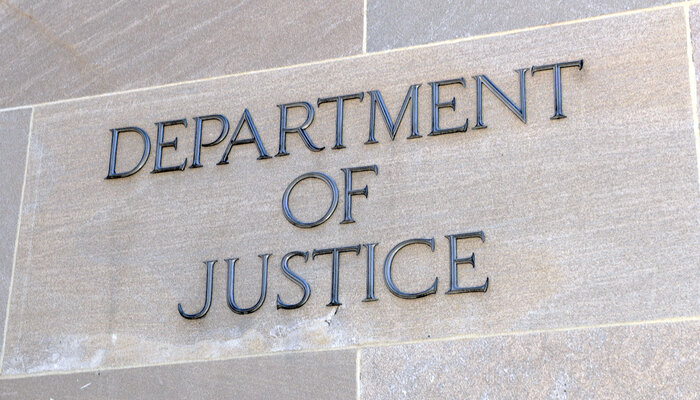The Department of Justice has been quietly undermining decades of bipartisan support for crime victims. While President Trump declared “unending support to every victim of crime,” in April the Department of Justice abruptly canceled 59 grants initially totaling more than $72 million intended to support survivors of crime.
Although DOJ leaders claimed that withdrawing these grants awarded by its Office for Victims of Crime would not directly impact victims, many of the groups that lost funding provided vital support to victims suffering profound physical, emotional, and financial harms. Overall, with these and other cuts, in April DOJ slashed grants with an initial value of at least $820 million, supporting more than 550 organizations across the country, many of which were working on long-standing bipartisan criminal justice priorities.
This analysis is part of a series exploring how these and other federal cuts have upended state and local efforts to improve public safety and our criminal justice system. The cuts to victim services set back a bipartisan push dating back to the Reagan administration to promote better treatment of crime victims. The cuts particularly harmed organizations serving victims who are often overlooked, such as those with fewer resources or from vulnerable communities, like members of minority groups and individuals with disabilities.
The department did soon restore funding to a handful of groups, such as pet-friendly domestic violence shelters and national hotlines serving survivors of domestic violence and other crime victims. Months later, it restored funding to a few others, such as a project for volunteer court advocates for children experiencing abuse or neglect. Yet these reversals amount to only a fraction of the slashed funds, and they were often bestowed in an ad hoc way, with little transparency or explanation, reflecting the haphazard and arbitrary nature of the department’s grant decisions overall.
The abrupt funding withdrawals also come at a particularly challenging time for victim services organizations. Countless local agencies and nonprofits were already facing budget shortfalls and navigating funding instability in the Crime Victims Fund, a primary source of federal grants for victim services. Many are also now reeling from federal funding freezes or rollbacks to programs that support recovery after victimization, such as initiatives at the Federal Emergency Management Agency and the Department of Health and Human Services.
Retracting victim services undermines justice and safety. Unaddressed trauma can lead to emotional and financial instability and can also perpetuate cycles of violence, retaliation, and victimization. It can reduce victims’ confidence in the justice system and make them less likely to participate in processes to help solve or prevent crime. Responsive and comprehensive victim services are thus critical to healing trauma and improving safety.
History and Role of the Crime Victims Fund
In 1982, President Ronald Reagan created the Task Force on Victims of Crime to investigate persistent failures of the justice system to adequately support crime victims. Its recommendations transformed federal investments in state and local victim services. The task force highlighted why federal funding was necessary to help states fill overlooked and unmet needs, such as assisting victims in obtaining immediate housing, navigating the court system, and recovering crime-related expenses including medical and counseling bills, lost wages, or funeral costs. In response, Congress passed the Victims of Crime Act in 1984, which created the federal Crime Victims Fund to support state and local victim compensation and assistance programs, to be financed through fines and penalties from federal criminal prosecutions.
For more than 40 years, state, local, and tribal governments as well as nonprofit organizations have relied on these federal resources to serve and compensate victims. In 2024, the Crime Victims Fund and matching state dollars provided assistance to more than 7 million people. That same year, federal and state victim compensation funds reimbursed victims for an array of crime-related expenses, including more than $116 million for medical and dental costs, $77 million for funeral and burial costs, and $60 million for sexual assault forensic exams. Even still, alarmingly high numbers of victims don’t receive services or compensation, and many marginalized groups experience high rates of victimization and low rates of services.
Although the Crime Victims Fund has long filled a gap in supporting victims, its standing has never been secure. Its primary source of financing comes from federal criminal monetary penalties, which fluctuate based on the number of cases prosecuted by the federal government and the amount of fines collected. Victim services groups and Congress have repeatedly raised concerns about the fund’s long-term stability and solvency.
While Congress has adopted some legislative fixes over the years, these changes have been insufficient to shore up the fund in the long term. Recent large settlements have helped bolster the fund, but it remains an unpredictable source of funding for crime victims’ needs.
Impact of DOJ’s Grant Cuts
This backdrop of financial uncertainty has compounded the impact of the loss of DOJ funding for crime victim services. People with disabilities, who are more likely than those without disabilities to be victimized, have been particularly harmed by cuts to direct services. For example, Activating Change, a national organization that helps ensure that crime victims with disabilities can access services nationwide, had to lay off staff and reduce its programming after losing seven grants and subgrants initially totaling more than $2 million — amounting to approximately 40 percent of the organization’s budget.
One terminated grant had provided local jurisdictions with free sign language interpretation for crime victims. The loss of this funding will exacerbate an existing shortfall, with almost a quarter of victim service providers reporting no sign language interpreters. Another supported training for law enforcement to help identify the needs of individuals with disabilities who are uniquely susceptible to trafficking. A third grant was to develop a protocol for service providers to better respond to victimization of individuals with disabilities by personal care attendants and address victims’ immediate safety and long-term needs.
Groups serving victims in minority and immigrant communities were also hit especially hard. Victim advocates help crime victims navigate the often-bewildering systems and processes to secure resources and compensation. The National Organization for Victim Advocacy (NOVA), the oldest national victim assistance organization, lost a grant originally valued at $870,000 for its Victim Advocacy Corps. NOVA started the corps as a pilot in 2022, working with six minority-serving institutions to train and accredit students to be victim advocates, providing a lifeline to victims of sexual assault, trafficking, domestic violence, and other crimes in communities often bypassed by traditional victim services. The sudden grant termination stymied NOVA’s plan to expand the corps.
Raksha, a nonprofit that works primarily with South Asian American and other immigrant survivor communities in Georgia, lost two grants initially totaling $750,000. One provided services to meet victims’ needs, such as transitional housing and food assistance. The other would have launched a new program to raise awareness of and access to the state victim compensation program. Now Raksha is forced to turn away victims seeking rental assistance and other emergency services and forgo its planned outreach.
In addition to cutting funding for these and other direct service projects, the DOJ also pulled funding for resource centers focused on improving the delivery of these services nationwide. The Center for Victim Research promotes collaboration between providers and researchers to increase the utility and accessibility of relevant research and data. The National Resource Center for Reaching Victims works to expand the capacity of providers to identify and serve underserved victims. The cuts will force both organizations to discontinue key programming.
Looking Ahead
The DOJ’s April grant cuts are one of a multitude of ways the Trump administration is threatening support for crime victims. Staff cuts at the Department of Health and Human Services have decimated its Office of Family Violence Prevention Services. FEMA has paused a program that provides emergency food and housing services for individuals in crisis that crime victims have relied upon.
Other policies could compound the harm to victims. The administration has recently imposed new conditions on funding that limit the kinds of victims who can be served and the services that can be provided, although some of these conditions were removed after successful court challenges. The administration’s budget proposal for fiscal year 2026 would slash 30 percent of the funding for the Office on Violence Against Women, which administers grants under the Violence Against Women Act and supports victims of sexual and domestic violence, along with funding to other agencies supporting crime victims. The recent trend of the DOJ prosecuting fewer white-collar crimes such as financial fraud and corruption may reduce the federal financial penalties that support the Crime Victims Fund, depleting the resources available to help victims nationwide.
• • •
It is not too late though for the administration to change course — or for Congress to prod it to do so. It should immediately restore terminated grants and ensure that future grant funding is responsive to the needs of diverse victim communities, especially those that have been historically underserved. Congress should ensure that future federal budgets sustain necessary funding for victim services across all agencies. Policymakers should also improve the stability and sustainability of the Crime Victims Fund by making it less reliant on financial penalties and funding it partially or entirely with congressional appropriations.
Restoring and ensuring adequate federal funding for victim services is essential to addressing the devastating physical, emotional, and financial harms facing crime survivors. In the long term, sustained support for victims can create a more effective justice system and improve safety for all.








